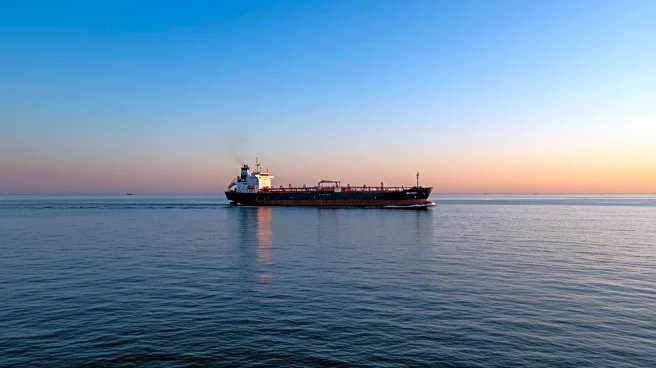What's Happening?
Chevron has commenced the export of Venezuelan crude oil to the United States after receiving a new license from the U.S. Treasury Department. This license, granted in late July, allows Chevron to operate in Venezuela despite previous sanctions. The first two cargoes, consisting of Hamaca heavy crudes and Boscan light crudes, have departed Venezuelan waters on tankers MediterraneanVoyager and CanopusVoyager. These shipments are headed to U.S. refining plants, with one vessel destined for the U.S. West Coast and the other for Port Arthur, Texas. Chevron is also negotiating with the Venezuelan government to reactivate a supply agreement, potentially involving Valero Energy to distribute the Venezuelan crudes to U.S. refiners.
Why It's Important?
The export of Venezuelan oil by Chevron marks a significant shift in U.S. policy towards Venezuela, reflecting a relaxation of the stringent sanctions imposed by the Trump Administration. This development is crucial for U.S. refiners, particularly those in the Gulf region, who are eager to access Venezuelan crudes due to their specific refining needs. The move could also impact global oil markets by increasing the supply of Venezuelan crude, potentially affecting oil prices and trade dynamics. For Venezuela, this represents an opportunity to boost its oil exports and revenue, which have been severely restricted by sanctions.
What's Next?
Chevron's continued negotiations with the Venezuelan government may lead to further agreements that could expand the scope of oil exports. U.S. refiners are likely to closely monitor these developments, as increased access to Venezuelan crude could enhance their operational efficiency. Additionally, political reactions from stakeholders in the U.S. and Venezuela could influence future policy decisions regarding sanctions and trade relations.
Beyond the Headlines
The easing of sanctions and Chevron's operations in Venezuela could have broader implications for U.S.-Venezuela relations, potentially paving the way for diplomatic engagements. It also raises ethical questions about the balance between economic interests and human rights considerations in foreign policy.










